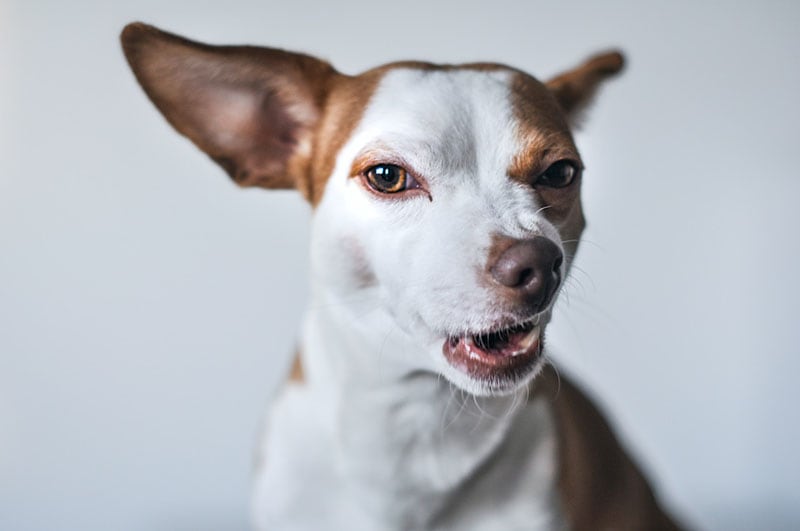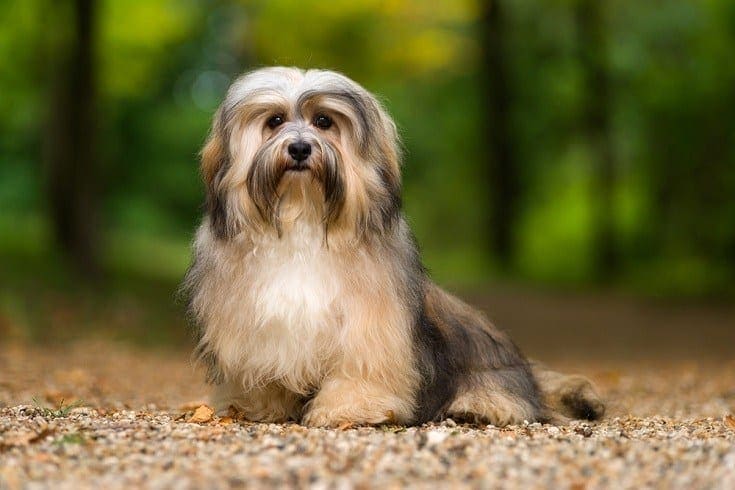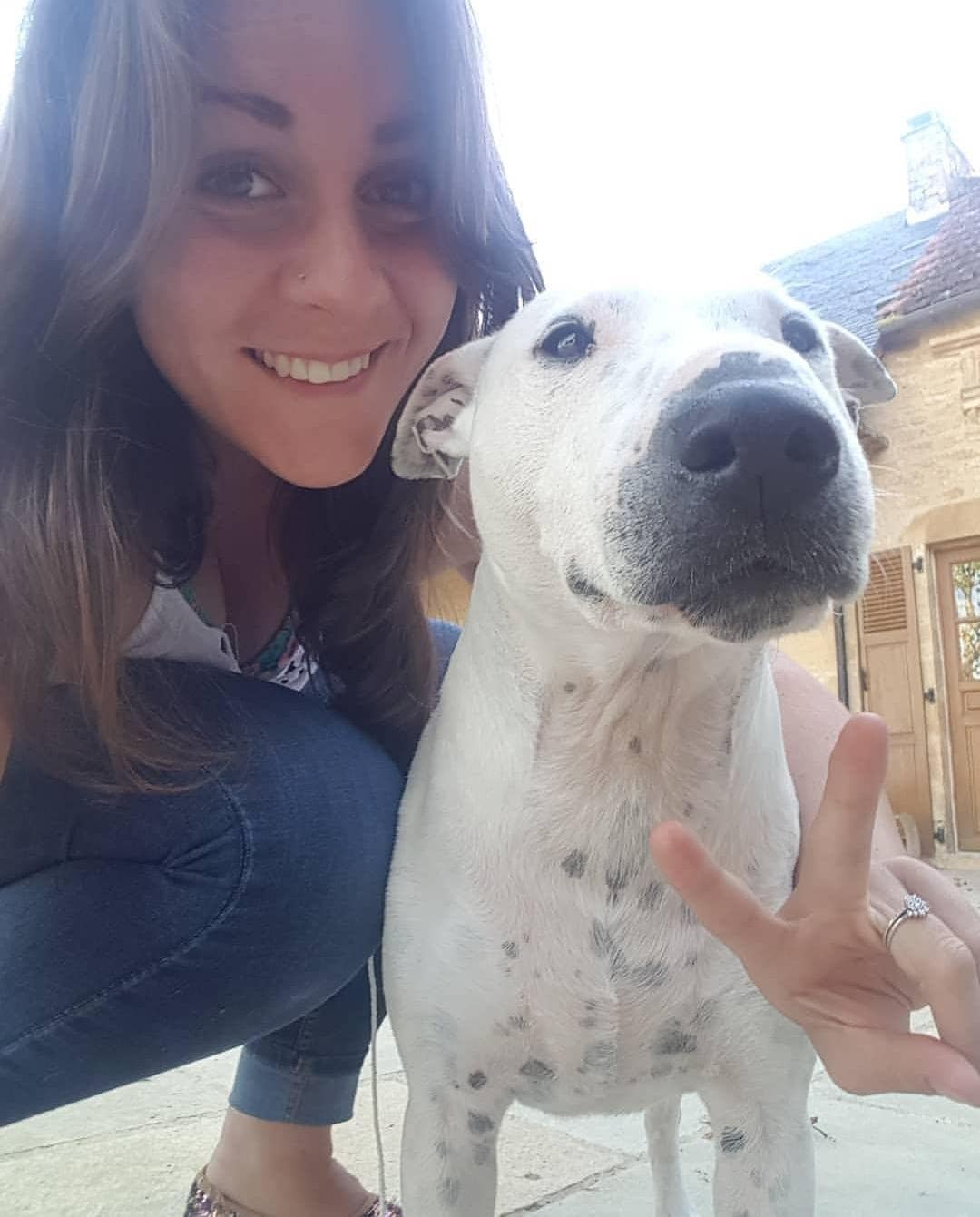What Should I Do If My Dog Pees In Their Sleep? Vet-Reviewed Tips
Updated on
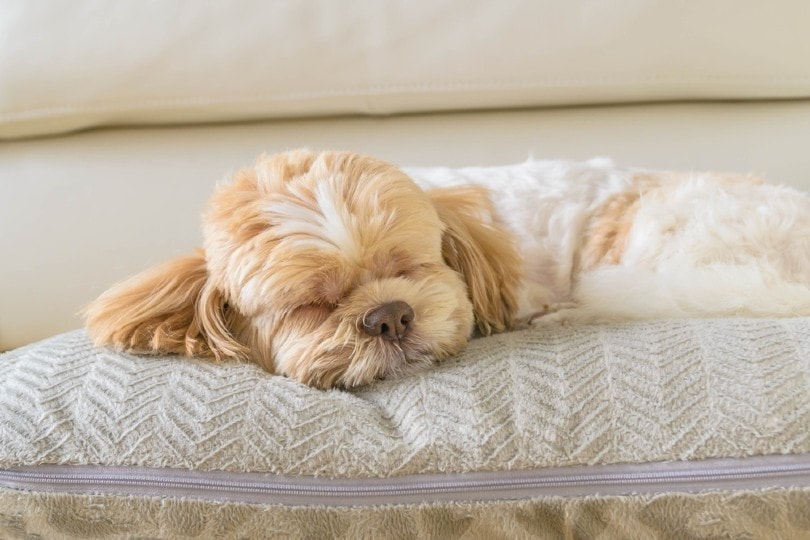
Just like humans, dogs are usually aware when they have to go to the bathroom. Whether potty trained or not, most dogs pee when they feel the urge to. That’s why it can be concerning for dog owners when they see that their dog is peeing while asleep.
If dogs pee in their sleep, you may notice wet spots on their bed or the floor wherever they are lying. This is usually a sign of urinary incontinence, which is likely caused by an underlying medical condition. You’ll need to take your dog to the veterinarian in order to determine what the cause is. Continue reading to learn more.
What Is Urinary Incontinence?
Urinary incontinence is essentially a loss of voluntary urination control, but what exactly does that mean? Well, normally, urination is a voluntary action, which means that dogs consciously decide when they pee. They pee when they feel the need to.
However, urinary incontinence means that your dog can’t control when it pees, and urine may leak out. Although you may notice it more when your dog is sleeping if she hasn’t gone to the bathroom in a while, urinary incontinence doesn’t just happen during sleep. It can occur even when your dog is just walking around, as a trail of pee may be left behind.
This has nothing to do with whether or not your dog is potty trained since urinary incontinence can happen even with dogs who have been going outside to potty for years, and they can still go outside to relieve themselves when they are awake. Urinary incontinence can happen to any dog, although it is more likely to occur in older dogs than younger ones, particularly those that are considered large breeds and females that have been spayed.
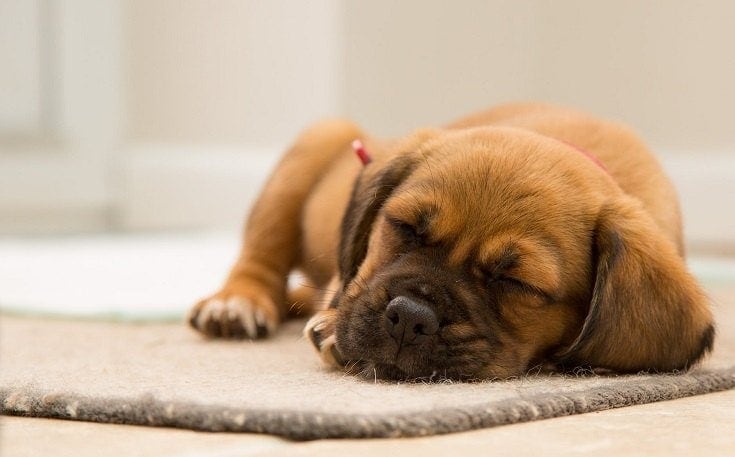
The 6 Causes of Urinary Incontinence
Urinary incontinence usually isn’t just a result of your dog getting old. There is usually an underlying cause, but the tricky part is figuring out what that underlying cause is, as there are several. In some cases, it may be due to a condition you already know your dog has. But in other cases, it could be something new that needs your vet to diagnose.
Below are some of the potential causes of urinary incontinence. However, you should also note that you shouldn’t just assume your dog has one of the following conditions without talking to a veterinarian first. They will ask you questions such as how long this has been happening, can the dog still pass normal volumes of urine at other times, and is there any pain, blood, or changes to appetite and thirst.
1. Anatomic Abnormalities
An anatomic abnormality is any alteration from the normal development of the bladder and urinary tract system. It can be due to a birth defect, such as ureters not being attached to the correct part of the bladder. In this case, your dog has likely been experiencing incontinence since puppyhood.
But if incontinence is new, consider whether your dog has recently had an injury or surgery that may have disrupted normal bladder function. If this is the case, contact your veterinarian to discuss further.
2. Bladder Storage Dysfunction
Another cause of urinary incontinence in dogs is bladder storage dysfunction. This essentially means that there is a problem with how your dog’s bladder stores urine. It could be that the bladder is smaller and holds less urine, or it is overly large or incompletely emptied, and the urine overflows.

3. Neurological Issues
Your dog could also be experiencing urinary incontinence due to an underlying neurological issue. An example of a neurological issue could be any disease that affects the brain or an injury to the nerves or spinal cord, such as a slipped disc. There are usually other signs of neurological dysfunction, such as difficulty walking.
4. Urethral Disorder
The urethra is the tube the urine travels through from the bladder when it leaves your dog’s body. If your dog is experiencing incontinence, it could be due to a urethra disorder. There is a muscular sphincter in the urethra that is involved in the control of urination. Urethral sphincter incompetence is a common cause of incontinence, and medications may help to improve the tone and control of the sphincter.
A urethral disorder could be a problem on its own, or it could exist alongside a urinary tract infection or inflammation. If this is the issue, your vet should be able to diagnose what is causing the urethral disorder and the resulting incontinence.
5. Urinary Tract Infection
Another cause of urinary incontinence in dogs could be that your dog has a urinary tract infection (UTI). Bacteria most commonly cause UTIs in dogs, but the infection irritates the bladder and the resulting urge to urinate frequently, and sometimes there will be urine leakage.
6. Urine Retention
Urine retention happens when your dog does not urinate for some reason, usually due to stress or another behavioral issue. Even though urination is a voluntary process in which your dog controls when to go potty under normal circumstances, urine retention means that your dog isn’t peeing but the pee has to be released anyway. This happens due to the buildup of pressure and fluid in the bladder, causing leakage.
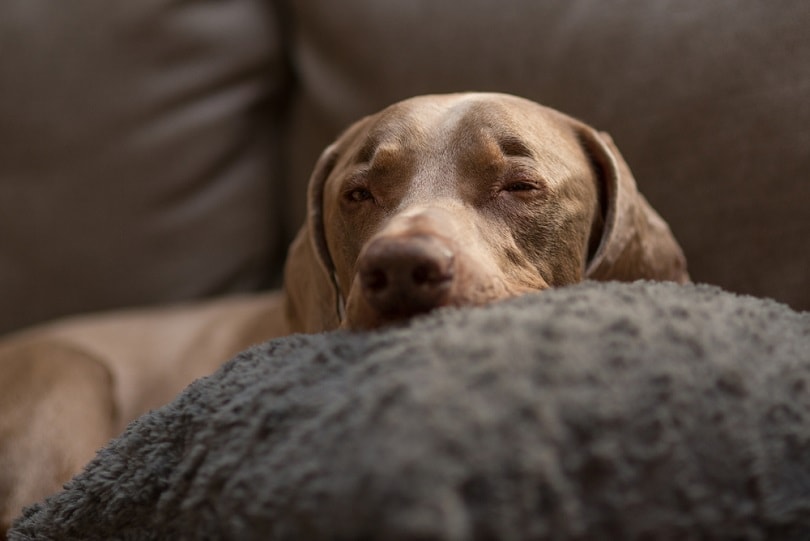
What Should You Do If Your Dog Pees In Their Sleep?
It may seem like a good solution to your dog peeing in its sleep to put a diaper on your dog. Although this will reduce the mess you have to clean up, it does nothing toward solving the problem. It’s also important to remember not to blame and scold your dog for something that they can’t help.
If your dog pees in its sleep (or experiences urinary incontinence at any other time), you should take it to the veterinarian, preferably with a fresh urine sample. Your vet can determine precisely what is causing the incontinence but will likely need to do some tests. Sometimes, it may be due to one underlying cause, but your dog may suffer from mixed urinary incontinence, in which more than one issue is causing the problem.
Your vet may perform a series of tests to determine what is causing your dog to pee in its sleep. This may include urine testing, X-rays, and ultrasounds, along with neurological tests and possibly inserting a catheter to release some of the fluid.
Once your vet determines the cause of the problem, they can decide which treatment is needed. The treatment will vary depending on what your dog is diagnosed with, but in most cases, urinary incontinence can be treated with medication or hormone replacements. The most common cause of urinary incontinence will require lifelong medication to control the urinary accidents.
Final Thoughts
It can be frustrating and even worrisome if your dog pees in its sleep, but the good news is that this problem is usually due to an underlying medical condition, and treatment options are available. The prognosis for urinary incontinence in dogs is usually good, and it can be managed with the help of your vet.
Featured Image Credit: 632imagine, Shutterstock



